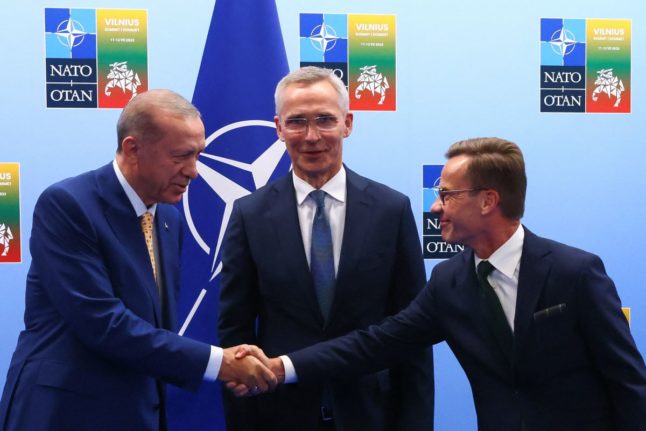“For 2019, we have a NATO defence spending of 47.9 billion,” equivalent to 1.39 percent of output, said a defence ministry spokesman.
“For next year, this spending will be at 50.3 billion, or 1.42 percent” of gross domestic product, he added.
The new estimates were above the 1.37 percent predicted in March for 2020, but still fall short of the two percent goal set by the alliance in 2014.
READ ALSO: Germany wants change to two percent NATO budget goal
Germany has been repeatedly singled out by US President Donald Trump for failing to meet the target.
Its latest commitment to increase spending also came amid sharp divisions with the bloc, after France's President Emmanuel Macron said the alliance was suffering from “brain death”.
The upper half of the following graph looks at Germany's defence spending per year in billions, while the lower half shows what percentage of the country's GDP this represents. The years 2018 and 2019 represent vorläufig (preliminary) figures.
In an interview with The Economist, Macron decried a lack of coordination between Europe and the US and lamented recent unilateral action in Syria by Turkey, a key member of the military alliance.
His comments were immediately slapped down by German Chancellor Angela Merkel, who called the “sweeping judgements” unnecessary.
READ ALSO: 'Resume the fight against terror': Merkel backs call for troops in Syria
In an interview published Sunday, German Defence Minister Annegret Kramp-Karrenbauer also underlined growing differences between the two European giants over NATO.
“The French aim for more European cooperation in order to replace NATO. I prefer to speak of “A2A”, or “ability to act,” Kramp-Karrenbauer told Die Welt daily.
“For me it's about everything that strengthens European defence strengthening the European pillar of NATO at the same time.”
READ ALSO: More women soldiers and less equipment: A look at Germany's army in numbers



 Please whitelist us to continue reading.
Please whitelist us to continue reading.
Member comments